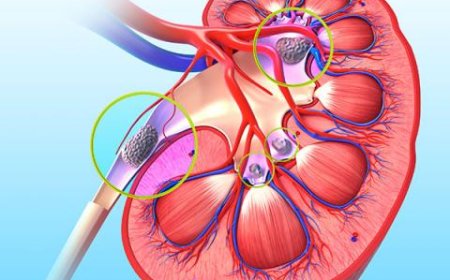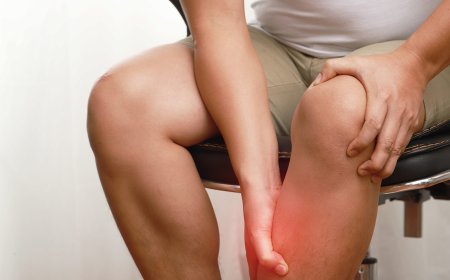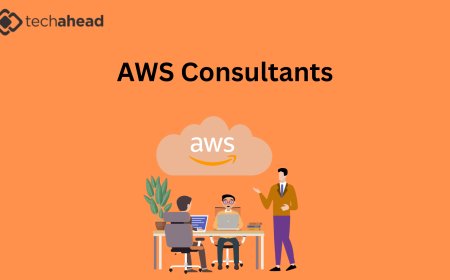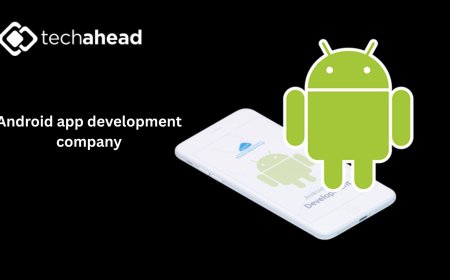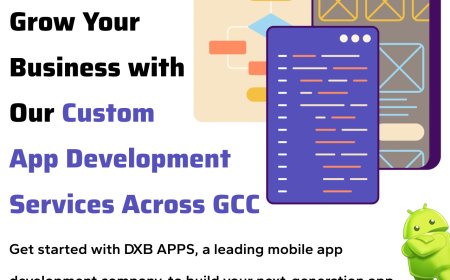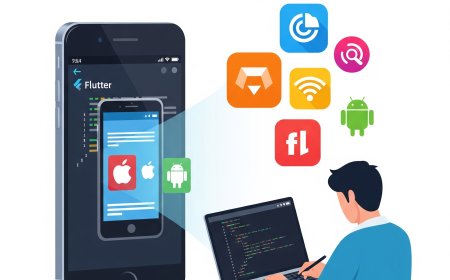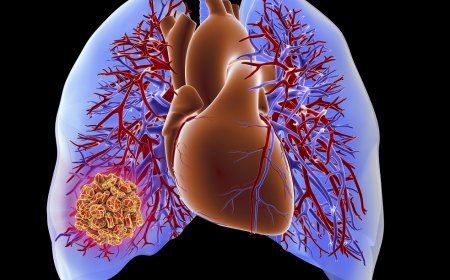How to Use Health Data to Improve Your Well-being
Using health data allows you to track progress, identify patterns, and make informed decisions to optimize your well-being and achieve long-term health goals.

Introduction
In today's digital age, health data has become a powerful tool for individuals seeking to improve their well-being. With the rise of smart wearables, online medical records, and AI-driven health applications, understanding and leveraging personal health data can lead to a more informed and healthier lifestyle. Whether you are monitoring your heart rate, tracking your sleep patterns, or assessing your diet, the insights derived from this data can be transformative.
This article will explore the importance of health data, how to track it effectively, and ways to use it to enhance physical and mental well-being. We will also touch on how technology has facilitated easier access to healthcare services, including online medicine delivery in Noida, making healthcare management more convenient than ever before.
The Importance of Health Data
Health data encompasses various aspects of an individual's medical history, lifestyle habits, genetic information, and real-time physiological metrics. By collecting and analyzing this data, individuals and healthcare professionals can make informed decisions regarding treatment plans, preventive care, and lifestyle adjustments.
Some of the key benefits of utilizing health data include:
-
Early Disease Detection: Regular health tracking can help identify anomalies in vital signs, prompting early medical intervention.
-
Personalized Health Plans: Data-driven insights allow for customized diet plans, workout regimes, and stress management techniques.
-
Improved Medication Adherence: Health apps and smart pill dispensers ensure medications are taken on time.
-
Better Doctor-Patient Communication: Sharing real-time data with doctors enhances medical consultations and accuracy in diagnoses.
How to Track Your Health Data Effectively
Health data collection is now easier than ever, thanks to advancements in technology. Below are some of the most effective ways to track and analyze health data for optimal well-being.
1. Wearable Health Devices
Devices like Fitbit, Apple Watch, and Garmin trackers provide real-time insights into various health metrics such as:
-
Heart rate and variability
-
Blood oxygen levels
-
Sleep patterns
-
Step count and activity levels
These wearables help in detecting potential health risks like cardiovascular diseases and sleep disorders, making them invaluable tools for health monitoring.
2. Mobile Health Applications
Mobile applications like Google Fit, Apple Health, and MyFitnessPal enable users to log dietary intake, monitor hydration levels, and track fitness goals. Additionally, they provide data analytics and insights, helping users to maintain an active and balanced lifestyle.
3. Smart Medical Devices
Devices like smart blood pressure monitors, glucose meters, and digital thermometers allow patients with chronic conditions to manage their health effectively from home. By syncing with healthcare platforms, these devices make it easier for individuals to share data with doctors.
4. Electronic Health Records (EHRs)
EHRs store comprehensive medical histories, lab results, and prescriptions in a digital format. Having easy access to EHRs ensures individuals can retrieve their health information anytime, especially during emergencies.
5. AI-Powered Health Analytics
Artificial Intelligence (AI) has revolutionized health tracking by providing predictive analytics based on health data trends. AI-driven platforms can assess symptoms and suggest medical interventions, reducing the need for frequent hospital visits.
How to Use Health Data for Improved Well-being
Tracking health data is only beneficial when used effectively. Heres how you can utilize this information to optimize your well-being:
1. Improve Your Diet Based on Data
Nutritional apps can track calorie intake, macronutrient distribution, and hydration levels. By analyzing this data, you can adjust your diet to suit your specific health needs, such as weight loss, muscle gain, or managing conditions like diabetes.
2. Optimize Physical Activity
Using fitness trackers, you can monitor workout intensity, step count, and calorie burn to optimize exercise routines. Individuals looking to build endurance or muscle can use data-driven strategies to modify workout plans accordingly.
3. Enhance Sleep Quality
Health tracking devices provide insights into sleep duration and quality. By identifying patterns in restlessness or deep sleep cycles, users can implement changes such as maintaining a consistent bedtime, avoiding caffeine before sleep, or using relaxation techniques.
4. Manage Stress and Mental Health
Heart rate variability (HRV) and stress tracking features in smartwatches allow users to recognize triggers that cause stress and adopt relaxation techniques such as meditation or deep breathing exercises.
5. Medication Adherence and Chronic Disease Management
Health apps provide reminders to take medications on time. Additionally, online medicine delivery Noida services enable convenient access to prescription refills, ensuring medication compliance and better management of chronic illnesses.
6. Regular Health Checkups
Analyzing personal health trends over time helps in identifying potential health risks. Routine doctor visits, coupled with shared health data, lead to accurate diagnoses and preventive care.
The Role of Technology in Making Healthcare More Accessible
The integration of technology into healthcare has not only improved personal health management but also increased accessibility to medical services. In cities like Noida, services such as medicine delivery Noida have made it possible for individuals to get their prescriptions delivered to their doorsteps with just a few clicks. This convenience is especially beneficial for senior citizens, individuals with mobility issues, and those with busy schedules.
With online medicine delivery Noida, users can:
-
Order prescribed medications anytime without visiting a pharmacy.
-
Compare prices and avail discounts.
-
Receive doorstep delivery, ensuring uninterrupted medication adherence.
This shift to digital healthcare services is bridging the gap between patients and healthcare providers, making essential medical services more efficient and reliable.
Conclusion
Health data is an invaluable resource in todays fast-paced world, empowering individuals to take charge of their well-being. By leveraging technology, individuals can track vital health metrics, optimize lifestyle choices, and ensure better healthcare management.
With services like medicine delivery Noida, access to essential healthcare products and prescriptions has become seamless, further enhancing overall well-being. As we move forward in this data-driven era, embracing health analytics and digital healthcare solutions will be key to living healthier and more fulfilling lives.
By understanding and utilizing health data, you not only make informed health decisions but also contribute to a proactive and preventive approach toward well-being. Start leveraging your health data today and pave the way for a healthier tomorrow!





